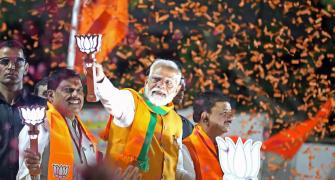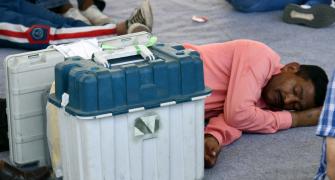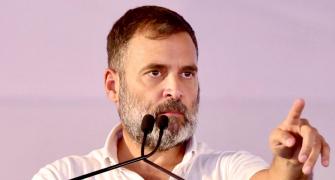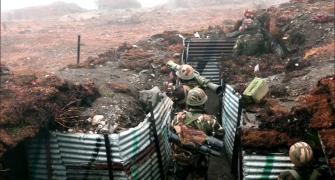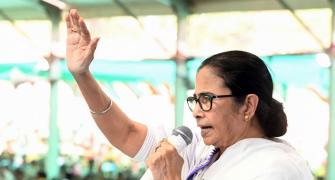He did not name the countries but the World Bank, in a separate report, has identified these nations - big lenders to the US which is running huge fiscal and trade deficits, as Brazil, China, India, Mexico, Thailand and Turkey, which "now represent over 45 per cent of developing country reserves."
Building up foreign exchange reserves is a strategy to gain independence and limit risks. But like everything else in economics, such a buildup has its limits, and at a certain point, it complicates monetary policy and anti-inflationary policy, Rato said in an interview to the IMF's own publication IMF Survey.
"We are advising the countries to be aware of these limits, although they are already very aware of them. We are also advising them...to move toward more flexible exchange rate mechanisms," he said.
The emerging market economies of Asia have to move towards exchange rate mechanisms that better reflect economic fundamentals and help them absorb changes in the world economy, or external shocks.
"If these major players adopt these policies, which are quite reasonable, the global imbalances could be reduced in a positive way," Rato added.
With regard to the global economy, Rato said, up to now, these countries have been the ones financing the US current account deficit, which has been the main engine of growth for the world. "So, on balance, we can't complain too much."
The question at present, he said, is whether the buildup is sustainable, and there is growing evidence that the buildup is very big and the markets are asking for a change in policy.
"I don't think it is a traumatic situation, but I do think a change in policy is needed to avoid getting into a traumatic situation. And now is a good time for most of the players to make such a change, as their economies are in an upswing, although it is a little less vigorous because of oil prices."
On the demand of developing countries for higher quotas and voice in the IMF, Rato said: "I don't think we have to be afraid of changes."
He said the IMF's legitimacy was not being threatened by the feeling of many countries in Africa and Asia that they are under represented in the IMF because their quotas are out of line with their current economic importance, adding the solution to it is "political consensus."
On the current high oil prices, de Rato said these prices are demand-driven, which is very different from previous oil price hikes.
"The world economy is doing a much better job of absorbing shocks caused by supply constraints...and policymakers in oil-importing countries will have to carefully review their energy policies, focusing on conservation and efficiency."

